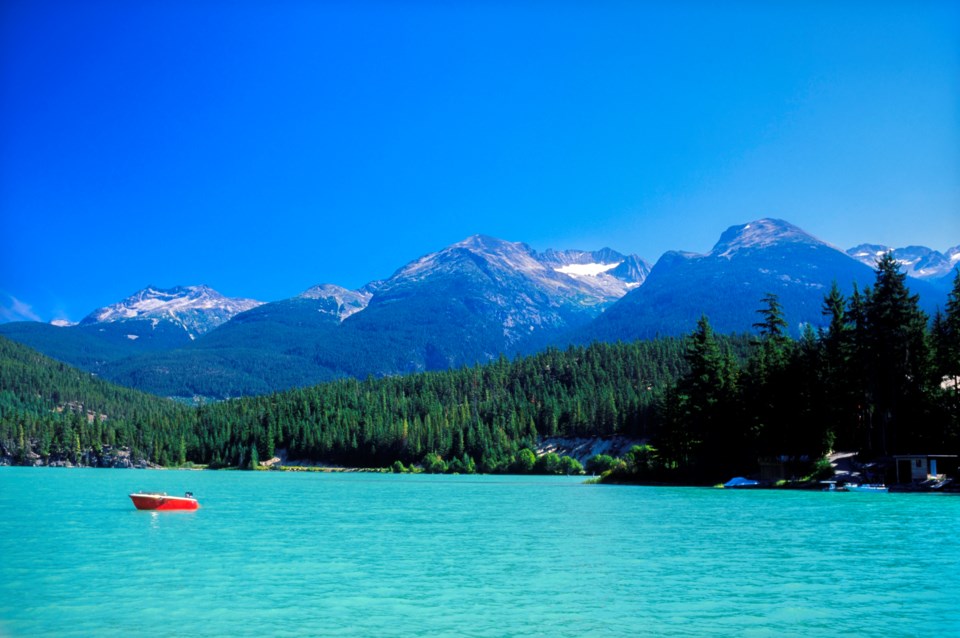Following Friday's brief rainy spell—and a risk of thunderstorms—Whistler locals and visitors are in for a real treat this weekend.
Peak summer conditions are sticking around, though temperatures are expected to drop slightly from the sweltering daily highs the resort experienced this week.
Environment Canada forecasters are calling for sun and (mostly) clear skies throughout the weekend, with a high of 27 degrees C Saturday, Aug. 20 and 29 degrees C Sunday, Aug. 21. If you're heading north towards Pemberton, expect those temperatures to feel more like 31 degrees C.
Temperatures will dip to a low of about 14 degrees C overnight, so maybe grab a sweater if you're heading out for some stargazing.
It could be an especially good weekend for that, if skies clear up: according to the Weather Network, aurora viewing could be possible in the Sea to Sky area. "Following a series of flares and solar storms over the past four days, a geomagnetic storm watch is currently in effect for the night of Friday, August 19," forecasters write.
Enjoy the less extreme heat while it lasts, though. Forecasters expect temperatures to rise again throughout the workweek, hitting highs in the low-30s later in the week.
The downside? With rising temperatures comes rising fire danger ratings. As of Friday, Aug. 19, the BC Wildfire Service is forecasting "extreme" fire danger in Whistler throughout the weekend, the highest possible rating. Propane campfires are not allowed in Whistler when the fire danger rating hits this level, while only CSA-rated or ULC-rated propane barbecues are allowed in Whistler parks. A campfire ban remains in effect throughout the Coastal Fire Centre, which encompasses the Sea to Sky corridor.
The typical daily high for Whistler at this time of year is 23.5 degrees C, according to Environment Canada.




